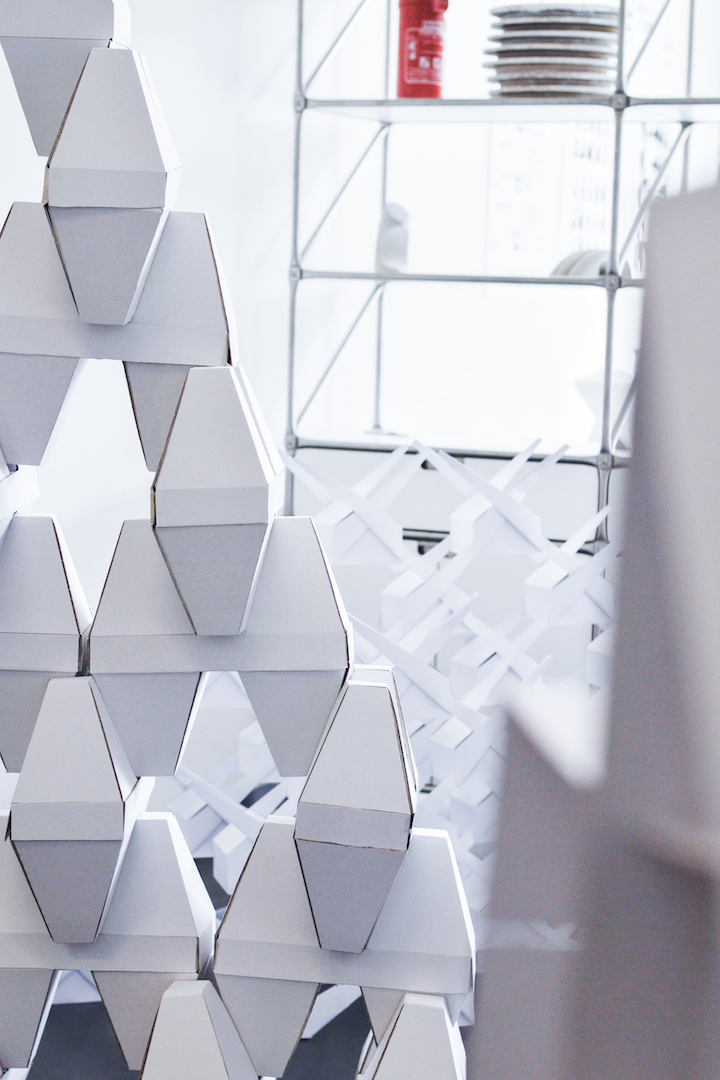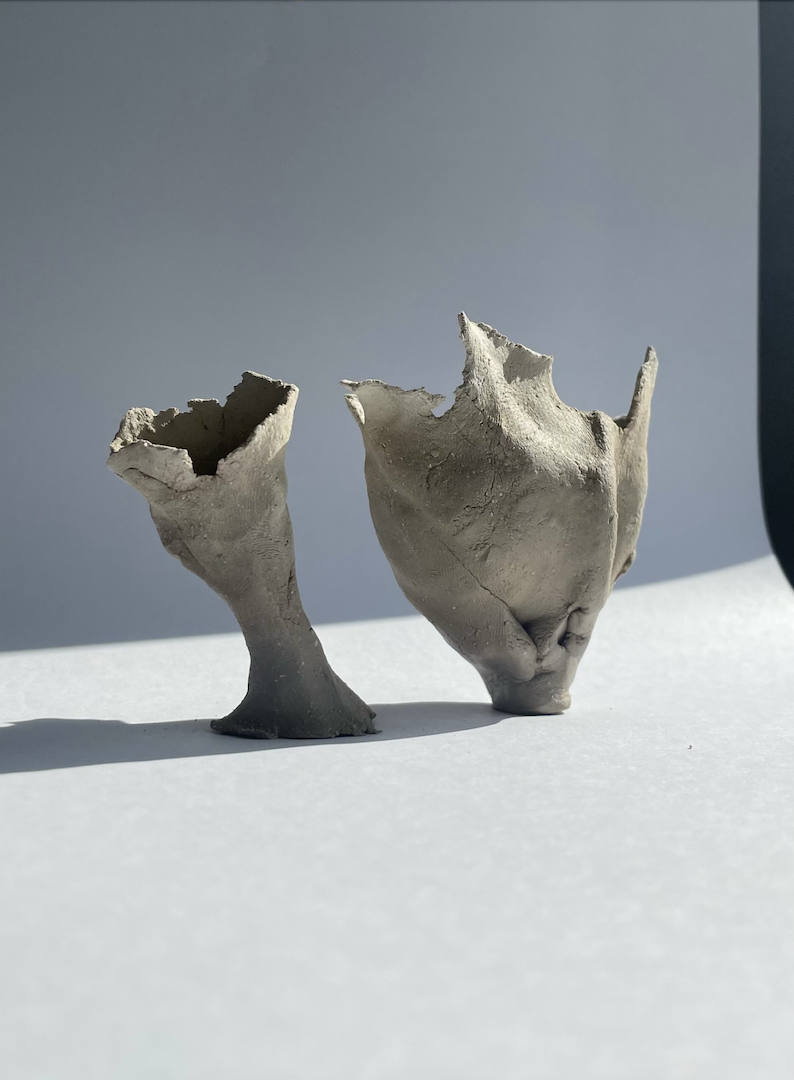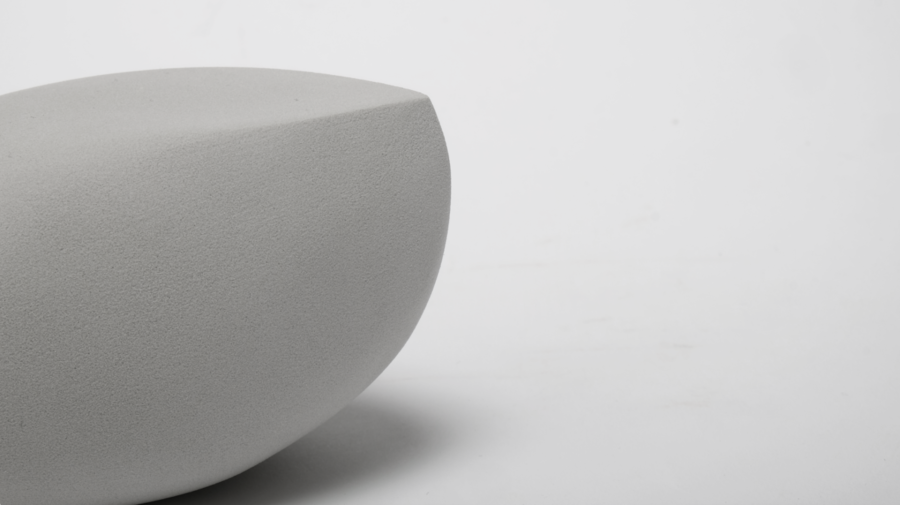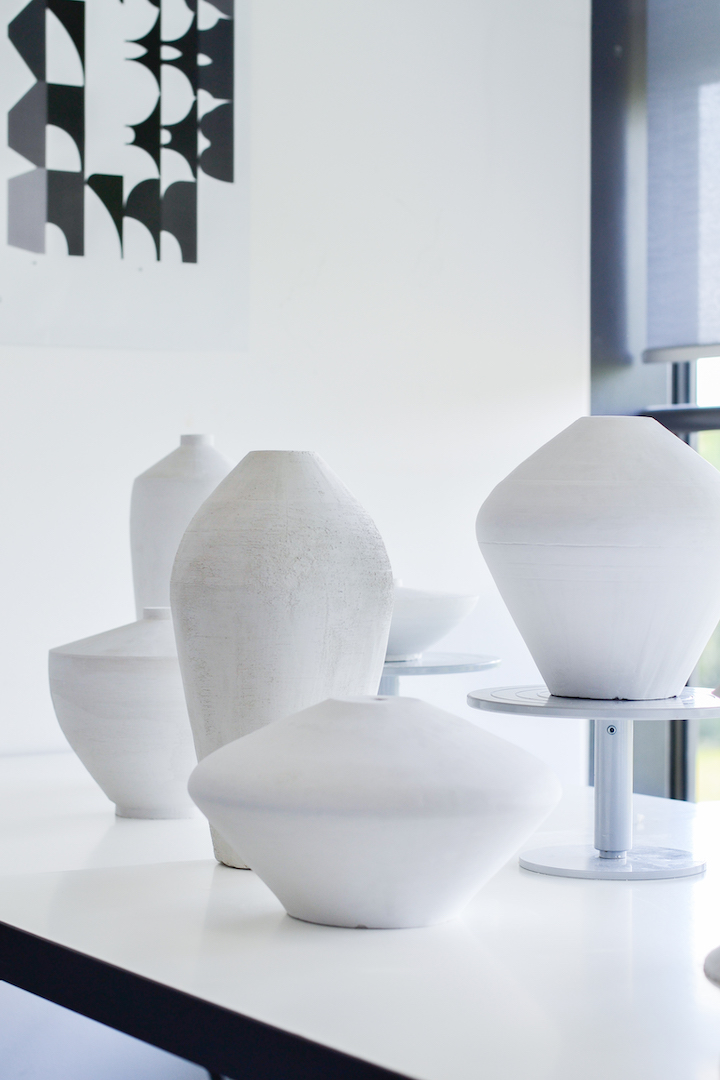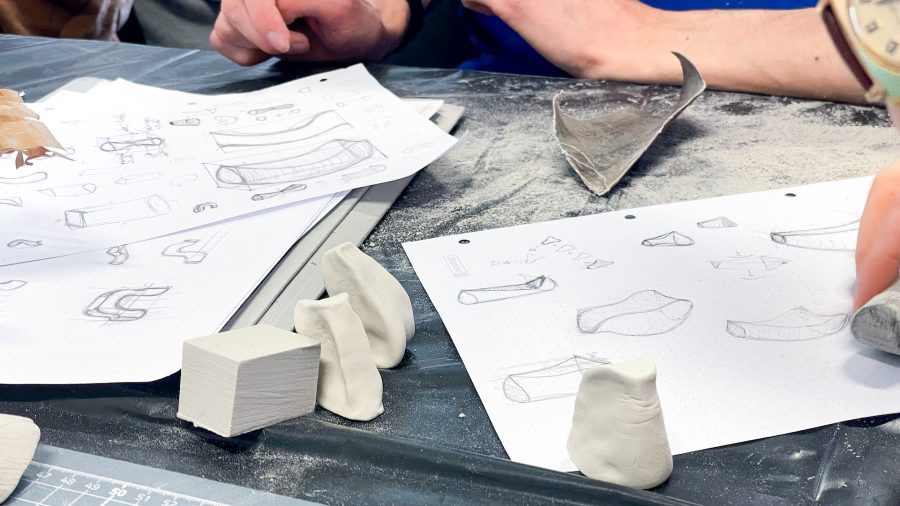Neo-Analogue Object Lab
I.0.1
Form-finding, Rapid Prototyping, Embodied Interaction
The object laboratory is dedicated to the intensive exploration of three-dimensional form. The proportions, cross-sections, textures and compositions of objects can be developed with the help of various methods. Particular attention is paid to analogue design tools and thus sensory-immediate working methods in various materials (such as cardboard, clay and hard foam) and subsequent techniques.
At the same time, digital processes such as 3D scanning, 3D printing and laser cutting will be explored. In this context, neo-analogue refers to a fluid transition between physical and digital practices – “a contextualized symbiosis of code, material, and form manifested as physical interaction between the artifact and the human that causes or creates a digital outcome”(1). The laboratory thus forms the interface to the 3D-printing-workshop, the modelling workshop and the interactive laboratory.
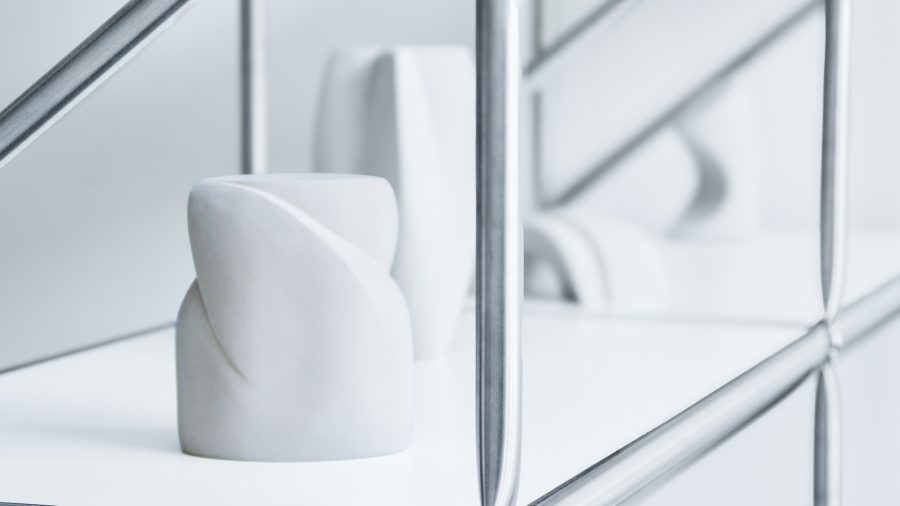
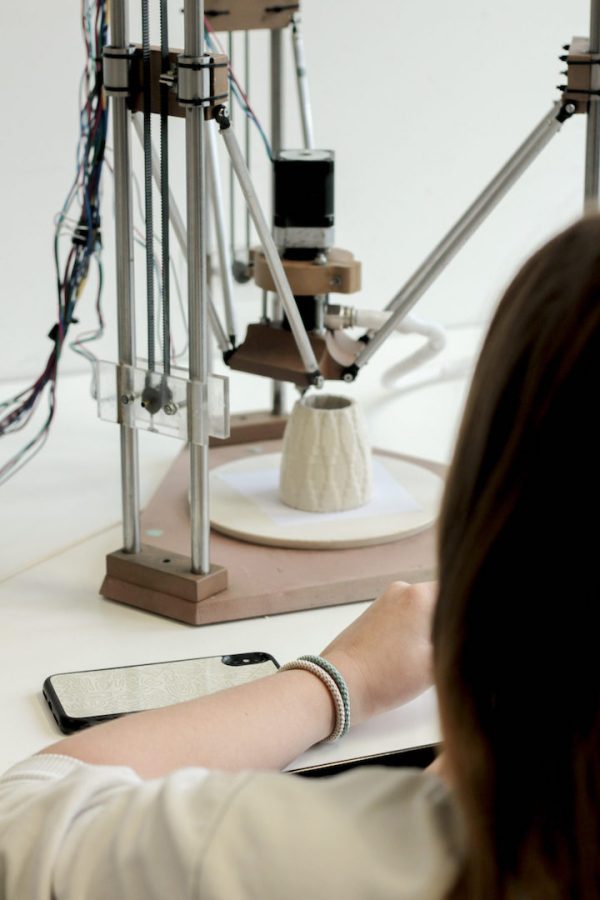
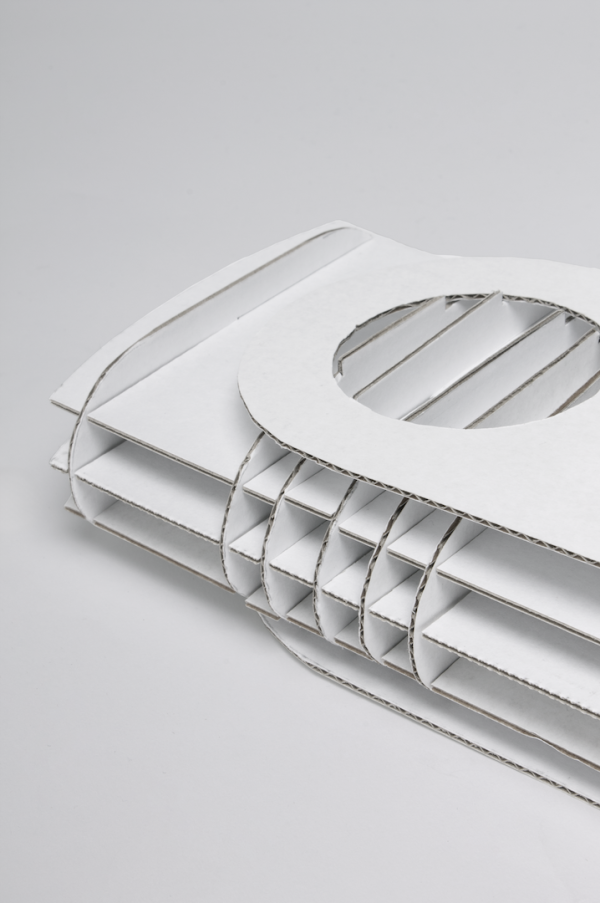
Hard foam processing – Dremel, Hanging motor, Hand router heads & drills, Files, Sandpaper a.o.
Clay processing – Edging discs, Modelling wood, Spatula a.o.
Cardboard processing – Cutting mats, Steel rulers, Cutters, Circle cutters a.o.
Other tools – Epoxy resin, Silicone, Plaster
3D printing – MakerBot Replicator 3, PLA filament in various colours, TPU filament (flexible)
It is possible to work independently in the object laboratory outside of course times. This requires instruction and acceptance of the laboratory regulations. For advice or if you are interested in working in the lab, please contact Prof Judith Glaser or drop in at one the weekly TinkerLAB sessions.
—
